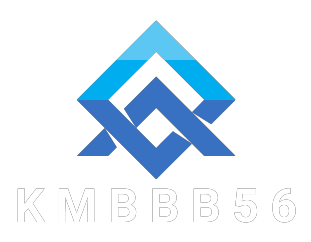The world of Managed IT Services is evolving faster than ever before. What was once a traditional model focused on maintaining servers, networks, and hardware has now transformed into a dynamic ecosystem powered by artificial intelligence (AI), automation, and innovative technologies. As businesses become more reliant on digital infrastructure, managed service providers (MSPs) are shifting their approach to deliver smarter Managed IT Services, faster, and more efficient IT support. Let’s explore the exciting future of managed IT services and how AI and automation are shaping this transformation.
The Changing Landscape of Managed IT Services
Historically, managed IT services primarily involved reactive support—fixing problems after they occurred and maintaining existing infrastructure. Today, with the rapid advancement of technology, MSPs are expected to be proactive partners that not only prevent issues but also optimize and innovate IT environments continuously.
The rise of cloud computing, remote work, cybersecurity threats, and the need for compliance have created complex challenges for businesses of all sizes. Managed IT service providers are adapting by integrating cutting-edge tools that allow them to anticipate problems, automate routine tasks, and provide strategic guidance to clients.
Artificial Intelligence: The Game-Changer
AI is at the forefront of this evolution. By leveraging machine learning algorithms, natural language processing, and predictive analytics, AI enables MSPs to monitor networks and systems in real-time with unmatched accuracy. AI-driven tools can detect anomalies that humans might miss, predict potential failures before they happen, and offer intelligent recommendations to improve system performance.
One of the most significant benefits AI brings is the ability to automate repetitive tasks such as patch management, system updates, and security scans. This not only reduces the burden on IT teams but also minimizes human errors, ensuring a higher level of reliability and security.
Furthermore, AI-powered chatbots and virtual assistants are revolutionizing user support by providing instant responses to common IT issues. This improves user satisfaction and frees up skilled technicians to focus on more complex problems.
Automation: Efficiency and Consistency
Automation complements AI by streamlining workflows and enforcing consistent procedures across IT environments. Managed service providers use automation to handle routine maintenance, backup verification, configuration management, and compliance checks without manual intervention.
With automation, MSPs can scale their services effectively, managing thousands of endpoints without compromising quality. Automation also accelerates incident response times by automatically triggering remediation protocols when specific conditions are detected.
Additionally, automation facilitates better documentation and audit trails, which are critical for meeting regulatory requirements and ensuring transparency.
Beyond AI and Automation: Emerging Trends
While AI and automation dominate the conversation, the future of managed IT services will also be influenced by several other emerging technologies and trends.
- Edge Computing: As data processing moves closer to the source of data generation, MSPs will need to support edge devices and infrastructure, enabling real-time analytics and low-latency applications.
- Zero Trust Security: The increasing complexity of cybersecurity threats demands a zero trust approach. MSPs will play a vital role in implementing continuous verification mechanisms and secure access controls.
- IoT Management: The explosion of Internet of Things (IoT) devices introduces new challenges and opportunities. Managing the connectivity, security, and data flow of these devices will become a critical service area.
- Hybrid Cloud Solutions: Businesses are adopting hybrid cloud architectures for flexibility and cost-efficiency. MSPs will offer expertise in orchestrating workloads across multiple cloud platforms seamlessly.
The Human Element: Augmentation, Not Replacement
Despite the advances in AI and automation, the human touch remains essential in managed IT services. These technologies do not replace IT professionals but rather augment their capabilities. Skilled technicians are needed to interpret AI insights, design innovative solutions, and build strong client relationships.
MSPs will increasingly focus on consulting and strategic IT planning, helping businesses align their technology investments with long-term goals. The partnership between humans and technology will define the next generation of managed IT services.
Preparing for the Future
For businesses and MSPs alike, embracing AI and automation is no longer optional—it is critical to staying competitive. Organizations should start by assessing their current IT operations, identifying repetitive processes ripe for automation, and investing in AI-driven tools.
Training and upskilling IT teams will also be vital to ensure they can work effectively alongside intelligent systems. Collaboration between service providers and clients will deepen, with shared goals focused on innovation, security, and operational excellence.
Conclusion
The future of managed IT services is bright and filled with possibilities. AI and automation are transforming traditional IT management into a proactive, intelligent, and scalable service model. As these technologies continue to mature, MSPs will evolve from mere problem solvers to strategic partners driving business success.
Businesses that embrace this future will benefit from enhanced efficiency, stronger security, and the agility to adapt to ever-changing technological landscapes. The journey has just begun, and the promise of managed IT services powered by AI and automation is truly exciting.
